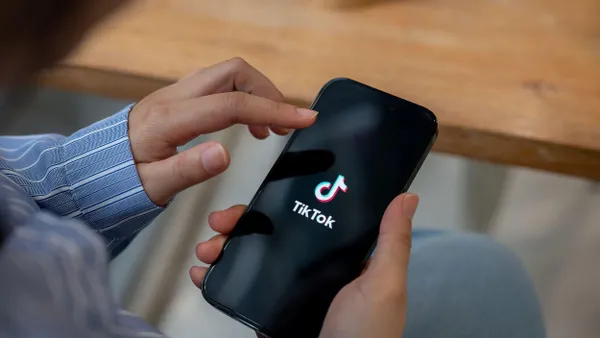Dive Brief:
- The city attorney of Los Angeles on Thursday sued the Weather Company, which is owned by IBM, according to The New York Times. The lawsuit alleges that the company's Weather Channel app misled users as to how their information would be leveraged.
- The lawsuit, which references a recent Times report on location-tracking practices, argues that the Weather Channel app's messages to users were "fraudulent and deceptive" and potentially violate California's Unfair Competition Law. The Weather Channel app encouraged users to turn on location tracking and suggested that their location data would exclusively be applied to better tailor local weather reports. According to the lawsuit, however, the app used the data for other means, such as targeting advertising.
- The suit is looking for civil penalties of up to $2,500 for each violation of the law, per the Times, which could collectively total millions of dollars in fines for the Weather Company given the number of California residents who potentially have the app. An IBM spokesman told the Times that the Weather Company has "always been transparent with use of location data" and that the businesses will "vigorously" defend their disclosures.
Dive Insight:
Depending on how the lawsuit filed Thursday plays out, it could come as a serious credibility and financial blow, not just to the Weather Company, but also IBM. IBM purchased all of the Weather Company's digital and data assets in 2016 and has frequently leveraged those assets to prop up other major company offerings, like its AI-powered Watson solution and advertising products.
The lawsuit coming from Los Angeles is significant as well, and signals that the growing governmental and regulatory scrutiny into businesses' data-collection practices that gained momentum last year has not cooled in 2019 and will continue to affect how marketers think about their strategies. In the complaint, attorney Michael Feuer said he hopes the case will prove to "be the catalyst for other action" around better guarding consumers' personal information.
Location tracking is a particularly contested area when it comes to data-sharing: Businesses value the ability to use geographic information to cater relevant messages to nearby consumers — an increasingly pressing issue in the industry, as marketing personalization often comes up short — but collection practices can be especially invasive in regulators' eyes and come off as creepy to users.
California is frequently noted for enacting strong consumer protection laws, including the recently passed California Consumer Privacy Act (CCPA), which goes into effect next year and grants residents the right to ask businesses to not sell their data. The city of Los Angeles has previously won similar cases to current one against the Weather Company as well, such as a suit brought against Wells Fargo in 2015, where the financial services firm ended up paying out a $50 million settlement, per the Times.
Much of the current conversation around data privacy has been spurred by Facebook's Cambridge Analytica scandal and subsequent controversies around how the social network shares user data with third parties, along with the introduction of more stringent laws like the EU's General Data Protection Regulation, which the CCPA echoes in some regards. Anxieties over myriad state-level laws like the CCPA has recently led some organizations, including the Association of National Advertisers, to push for a comprehensive federal law that could lessen compliance burdens and legal complexities around data collection.













